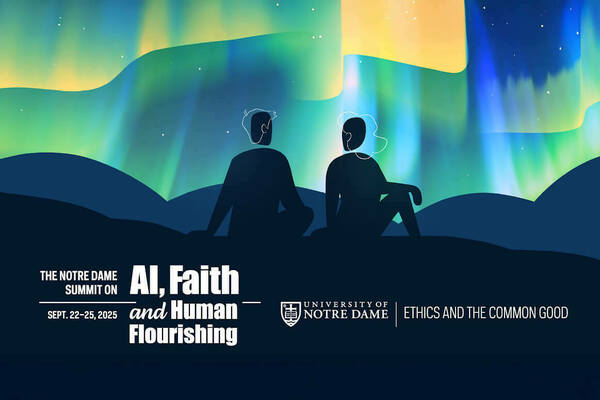Consumers prefer dealing with chatbots over humans when buying ‘embarrassing’ products online

Consumers are increasingly tired of interacting with chatbots in customer service. There are times, however, when people prefer chatbots, according to new research from the University of Notre Dame.
When purchasing “embarrassing” products like diarrhea medicine or acne cream, consumers would rather engage with a chatbot over another human, even when they are shopping alone at home, according to lead author Jianna Jin, assistant professor of marketing at Notre Dame’s Mendoza College of Business. Jin’s findings, “Avoiding embarrassment online: Response to and inferences about chatbots when purchases activate self-presentation concerns,” were recently published in the Journal of Consumer Psychology.
Jin, along with Jesse Walker and Rebecca Walker Reczek from Ohio State University, looked at how shoppers’ desire to avoid embarrassment influenced two types of interactions with chatbots: when a chatbot’s identity is disclosed, and when it is not disclosed and is therefore ambiguous.
Across seven experiments with more than 6,000 participants, the team created and used its own chatbot to study the intricacies of human-chatbot interaction. People shopped for hemorrhoid medication and anti-wrinkle cream, among other products.
In one experiment, participants were asked to imagine shopping for diarrhea and hay fever medications and were offered two online pharmacies, one with a human pharmacist and the other with a chatbot pharmacist. The medications were packaged identically, with the only difference being their labels for “diarrhea” or “hay fever.” More than 80 percent of consumers looking for diarrhea treatment preferred a store with a clearly non-human chatbot, which was not the case when shopping for hay fever medication.
Another experiment used a dating app enabled with either a clearly identified chatbot or human match agent that asked sensitive questions about things like body shape. Again, when facing sensitive questions, people disclosed more and preferred a clearly non-human chatbot match agent over a human agent.
Consumer embarrassment also plays a role when a chatbot’s identity remains ambiguous. When interacting with a chatbot that looks and sounds human, consumers who are more likely to be embarrassed when buying hemorrhoid cream, for example, are more likely to infer the agent is human and potentially avoid the interaction altogether.
“When it comes to sensitive purchases, if there’s any doubt about who they’re interacting with, perhaps because of a human-like profile picture, people will err on the side of caution and treat the AI chatbot as if it’s human to protect their self-image,” Jin said. “It’s a way of preparing for the worst-case social scenario. But give them a clearly non-human chatbot, and suddenly that self-presentation pressure vanishes because there’s no perceived judgment.”
When consumers know for sure they are interacting with a chatbot, they strongly prefer it over a human for embarrassing purchases. And they really want it to look and sound like a machine rather than the more human-like versions the industry is trending toward. These shoppers proved more willing to engage with a chatbot, choose a store that uses one, and even share email addresses and other personal information to get free samples.
“While our studies focus on classic ‘self-conscious’ purchases, the insight extends more broadly,” Jin said. “A car leasing company could use a clearly identified, machine-like chatbot to assist women in an industry where they may experience stereotype-based judgment.”
The findings can help guide companies in deciding when to deploy chatbots, why they work in certain contexts and how to design them effectively.
Contact: Jianna Jin, 574-631-1509, jjin5@nd.edu
Latest ND NewsWire
- Banks that identify fraudsters increase loyalty, retain more defrauded customers than others who never were compromisedIn a new research study, Vamsi Kanuri, the Viola D. Hank Associate Professor of Marketing at the University of Notre Dame’s Mendoza College of Business, found that banks that identify fraudsters earn customer loyalty and lose customers if they can’t say who was responsible for a fraudulent transaction.
- Notre Dame to host summit on AI, faith and human flourishing, introducing new DELTA frameworkThe Institute for Ethics and the Common Good and the Notre Dame Ethics Initiative will host the Notre Dame Summit on AI, Faith and Human Flourishing on the University’s campus from Monday, Sept. 22 through Thursday, Sept. 25. This event will draw together a dynamic, ecumenical group of educators, faith leaders, technologists, journalists, policymakers and young people who believe in the enduring relevance of Christian ethical thought in a world of powerful AI.
- Notre Dame Democracy Initiative hosts bipartisan conversation with Western state governorsTwo Western state governors known to work across the aisle on policy issues such as water, housing and energy will visit the University of Notre Dame for a fireside chat about how Western state pragmatism can serve as a model for the country to overcome polarization.
- In new research, Roy Scranton explores climate change and the limits of human progressIn his most recent book, “Impasse: Climate Change and the Limits of Progress,” Scranton, an associate professor of English, defines the impasse he sees as “not only political and institutional, but cognitive, existential and narrative” and asserts that the only path forward is through embracing what he terms ethical pessimism. “A lot of people confuse pessimism with nihilism, apathy and despair,” Scranton said. “But pessimism is actually about recognizing our limits, letting go of unrealistic goals, finding solidarity in the fact of human suffering and doing what you can now, not in some utopian future.
- Notre Dame MBA launches deferred admission programThe Notre Dame MBA Deferred Admission Program allows candidates with little or no work experience, including college seniors, to secure admission before reaching the recommended three years of work experience to enroll.
- ‘Prebunking’ false election claims may boost trust in electionsIn recent years, democracies worldwide have seen a growing erosion of trust in election outcomes and institutions, driven in part by fears of widespread fraud. New Notre Dame research finds that “prebunking” — providing accurate information before false claims spread — boosts trust in elections more effectively than traditional fact-checking.













